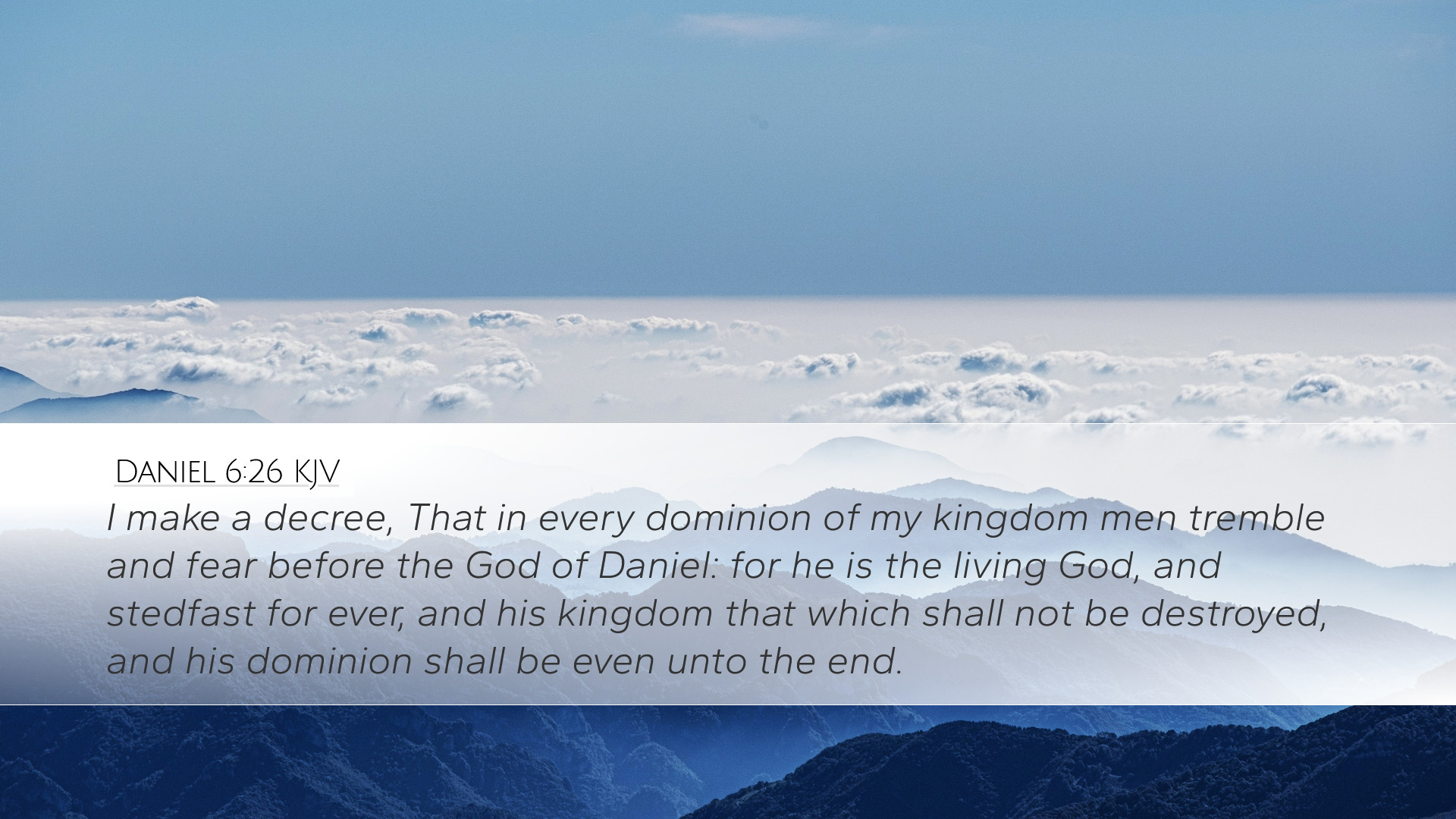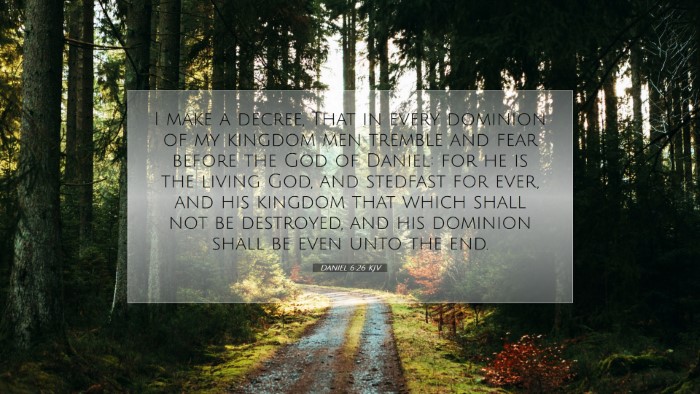Commentary on Daniel 6:26
Daniel 6:26 states:
"I make a decree, that in every dominion of my kingdom men tremble and fear before the God of Daniel: for he is the living God, and steadfast for ever, and his kingdom that which shall not be destroyed, and his dominion shall be even unto the end."
Introduction
This moment in the Book of Daniel encapsulates the profound impact of Daniel's faithfulness to God amid adversity. After God delivered Daniel from the lions' den, King Darius issued a decree recognizing the true God, marking a pivotal moment of acknowledgment of God's sovereignty and power over earthly kingdoms.
The King’s Decree
Royal Recognition: Darius, influenced by the miraculous deliverance of Daniel, decrees that all nations within his vast empire must respect the God of Daniel. This decree reflects a significant shift in Darius's understanding, acknowledging a higher power beyond his reign. As noted by Matthew Henry, "the king was compelled by the evident miracle to make this declaration."
Universal Application: Darius's command extends to every dominion of his kingdom. This signifies not just a personal belief but a governmental endorsement of worship towards the God of Israel. Albert Barnes comments on the "trembling and fear" aspect, suggesting that this recognition must lead to reverence and respect for the living God within all his subjects.
Characterization of God
Living God: The declaration that God is "the living God" distinguishes Him from the lifeless idols worshiped in the ancient world. God’s active presence and intervention in the affairs of men affirm His sovereignty. Adam Clarke elaborates on this by contrasting the living God of Daniel—with the impotent deities of the Babylonians—which highlights the futility of idolatry.
Steadfastness: Darius refers to God as "steadfast for ever," indicating His unchanging nature. This permanence stands in stark contrast to the transient nature of human authority and kingdoms, a theme also emphasized in Matthew Henry's reflections on God’s eternal kingdom that outlasts all earthly powers.
The Kingdom of God
Indestructibility: Darius asserts that God's kingdom "shall not be destroyed." This claim affirms the ultimate victory of God over all earthly governments, reinforcing the prophetic theme within Daniel regarding the establishment of God's everlasting kingdom, as mentioned in Albert Barnes' commentary on the broader narrative of the book.
The Enduring Dominion: The reference to God's dominion extending "even unto the end" encapsulates the eschatological hope prevalent throughout scriptural texts. Adam Clarke emphasizes that God's reign surpasses temporal realities, ensuring that believers can anchor their hope in His unshakeable authority.
Lessons for Today
This decree serves as a reminder for contemporary believers regarding the sovereignty of God amidst societal challenges. As highlighted by Matthew Henry, “the acknowledgment of God’s authority should encourage us in our faith, urging us to proclaim His greatness in all aspects of life.”
Evangelistic Opportunity: The recognition of God by an earthly king presents a profound evangelistic opportunity. Believers are called to live faithfully, allowing their actions to testify to the reality of God’s power. Albert Barnes suggests that believers have a responsibility to represent the living God in their communities, encouraging others to recognize His lordship.
Conclusion
The decree of Darius in Daniel 6:26 stands as a monumental testament to the acknowledgment of God’s sovereignty and the affirmation of His nature as the living, steadfast ruler. As pastors, students, theologians, and scholars reflect on this passage, they are reminded of God’s unparalleled authority and the call to live lives that testify to His greatness.
In light of this passage, it is vital for modern believers to engender a sense of reverence and devotion to our living God, drawing strength from His eternal nature while proclaiming His power to a world in need of hope and deliverance.


